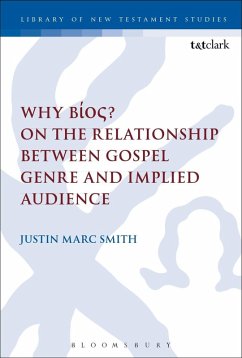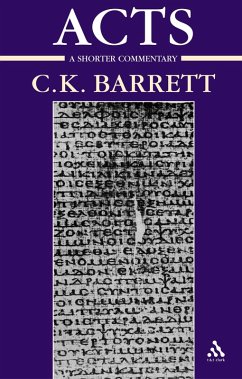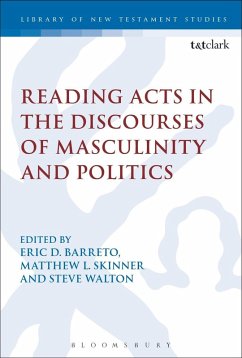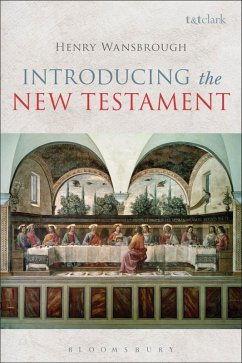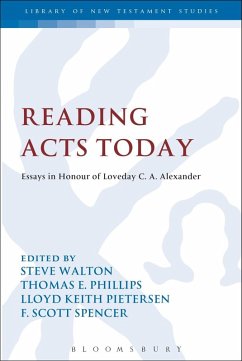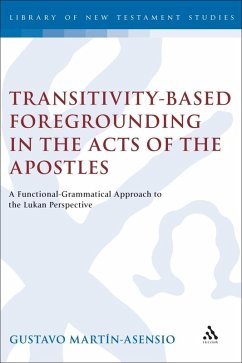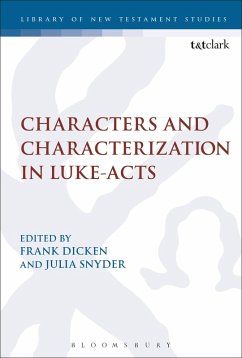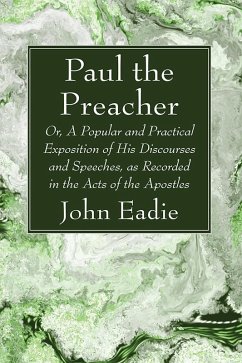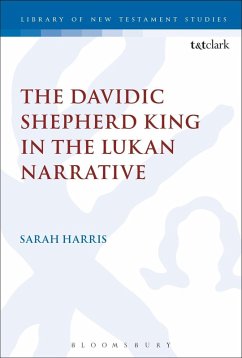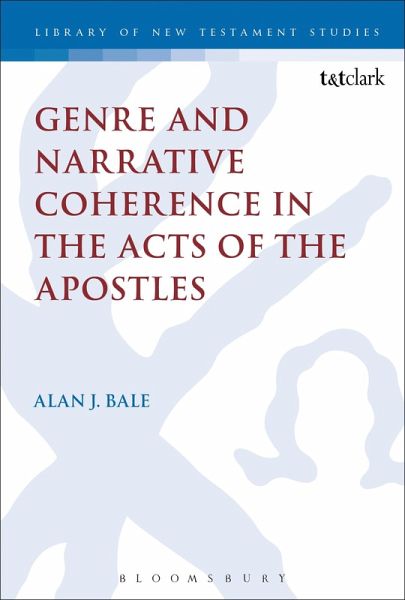
Genre and Narrative Coherence in the Acts of the Apostles (eBook, PDF)
Versandkostenfrei!
Sofort per Download lieferbar
31,95 €
inkl. MwSt.
Weitere Ausgaben:

PAYBACK Punkte
16 °P sammeln!
Focusing specifically on the issue of genre methodology in Acts, Bale' work will have clear ramifications for the study of biblical texts in general. The first part of the work surveys the state of genre theory in Acts scholarship and demonstrates its inadequacy for both classifying and interpreting Acts. Bale constructs a new genre model rooted in contemporary genre theory, tackling the problematic issue in Biblical scholarship of the relationship between history and fiction in literature. From this theoretical analysis Bale presents a new, pragmatic model for genre which is non-exclusive and...
Focusing specifically on the issue of genre methodology in Acts, Bale' work will have clear ramifications for the study of biblical texts in general. The first part of the work surveys the state of genre theory in Acts scholarship and demonstrates its inadequacy for both classifying and interpreting Acts. Bale constructs a new genre model rooted in contemporary genre theory, tackling the problematic issue in Biblical scholarship of the relationship between history and fiction in literature. From this theoretical analysis Bale presents a new, pragmatic model for genre which is non-exclusive and heavily intertextual. In part two Bale utilises the model in three original readings which draw heavily upon parallels from ancient literature. The first reading shows how a specific device at the beginning of Acts dictates interpretation. The second looks at the problem of Paul's status as apostle in Acts from a narrative rather than a propositional perspective. The final reading explores several passages in Acts which may instructively be read as incorporating themes and techniques from ancient comedy and related genres.




